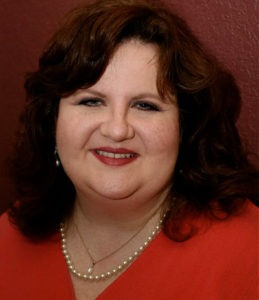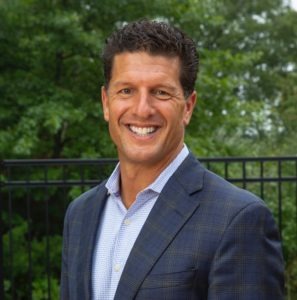Music Therapy for Alzheimer’s and Dementia
Music can reach people in ways other therapies cannot.
Have you ever heard a song on the radio and been instantly transported back to the time and place associated with that music? It can be an enormously powerful experience, and for some patients with Alzheimer’s disease and other forms of dementia, music’s unique ability to remind them of their former selves is beginning to be harnessed — with dramatic results.
What is Music Therapy?

Ruth Drew, director of information and support services for the Alzheimer’s Association
Ruth Drew, director of information and support services for the Alzheimer’s Association, says “music therapy is the use of music to help address physical, emotional, behavioral and social needs of an individual. For people living with dementia, music can allow for self-expression and engagement.”
For example, music can “help change a person’s mood. A favorite song may make a person come alive, smile, and feel increased well-being.” For some people, it can even help them find words again. “In some cases, people who have trouble carrying on a conversation can sing along with a familiar song from their past,” she says.
Eleonora Tornatore-Mikesh, chief experience and memory care officer at Inspīr, a luxury senior living community in Manhattan, says that music therapy for dementia can be an extremely powerful way of reaching people who’ve been affected by the disease.
Researchers at the University of Utah are looking at exactly how music works on brains affected by dementia and have found that music activates the salience network of the brain. This network controls our perception of stimuli in our environment and our emotional and behavioral responses to stimuli.
Music Taps Into the Amygdala

Eleonora Tornatore-MIkesh, chief experience and memory care officer at Inspīr
“The emotional part of the brain is unaffected by Alzheimer’s disease. Music taps into the amygdala, which is unaffected,” says Tornatore-Mikesh, and it can transport people with dementia to a previous time in their life via the memories that are connected to the music. “A true therapeutic music program taps into the emotional part of the brain, and you see glimpses of who they were,” she explains.
While there is some research evidence that supports its use, more work needs to be done to determine exactly how and why it works. However, Drew says there is “anecdotal evidence to suggest that music can enrich the lives of people living with Alzheimer’s and other dementias.”
Case in point: Tornatore-Mikesh tells the story of one resident who was formerly an opera singer. She hadn’t spoken in years, but after working with a music therapy program, she was transformed. “When we went to record a song, she got into her performance posture and her hands came into motion. She opened her mouth and it was like an angel singing.” The woman’s daughter was astounded to see this glimpse of her mother’s former self.
Who Might Benefit?
Music therapy can be a good option for people at all stages of dementia, Drew says, because music can “provide a way to connect, even after the disease has progressed and verbal communication has become difficult. For some, even in the late stages of the disease, a person may be able to tap to a beat or sing lyrics to a song from childhood.”
Drew says the benefits of music therapy may include:
- Calming agitation
- Improving overall mood
- Increasing social interaction
Setting Up a Program
If you’re looking to establish a music therapy program at your senior living facility, Tornatore-Mikesh says you should be clear on the distinction between entertainment and therapy. “Entertainment is not music therapy,” she says. Music therapy needs to be:
- Intentional
- Structured
- Monitored
She says it’s vitally important that music therapy sessions occur at the same time each day. The consistency is a big piece of how and why it works.
Focus areas for music therapy may include:
- Music and movement, which may incorporate elements of dance
- Songwriting
- Lyric analysis
- Reminiscence/life review, which encourages people to recall where they were and how they felt when they first heard a song
- Simply listening to music stimulates the brain.
- Relaxation
- Guided imagery
- Instrument playing
- Singing
Patients at different points along the progressive spectrum of Alzheimer’s or dementia may respond better to these various focus points, and it’s critical that any program you do set up be tailored to the individual, Tornatore-Mikesh says. “The only downside to music therapy is that the music needs to be of their generation and something that the individual enjoys. The big buzz word is person-centered, and that’s really important.”
Tailor Programs To Individuals
If a resident doesn’t like show tunes, for instance, using them as the basis of a therapy program for that person may backfire and make them more agitated. If the person is verbal and able to express these likes and dislikes, they may be able to tell you what kind of music they enjoy. If they’re non-verbal, Tornatore-Mikesh says you can look for body language cues that indicate whether the music is providing a pleasant or distressing experience.
Like other forms of intervention, music therapy should have goals and a treatment plan. Part of establishing a quality music therapy program means getting the right help, Tornatore-Mikesh says. “Music therapy is done by a credentialed professional who has completed an approved music therapy program.”
While there are music programs in many senior living facilities, not all of them can be classified as music therapy. There are programs all over the country, and local academic centers may be a great option for connecting with a credentialed music therapist to help establish a program at your facility.
Music therapy can also be combined with other stimuli, such as art, dance, or interaction with pets. “The Alzheimer’s Association encourages memory care facilities and family caregivers to explore activities that will best engage the person they are caring for,” Drew says. This means focusing “on the preferences of the person. Find activities that meet them where they are in that moment, and help them enjoy life with dignity.”
Lastly, Drew notes that “Alzheimer’s is a progressive disease, and people living with the disease have good days and bad days. What works one time may not work later, but the better you know [the patient], the better the chances of engaging them.” You may need to adjust the program to suit the individual day-to-day and longer term as his or her cognitive abilities decline.

Elaine K. Howley is a freelance journalist for various publications. An award-winning writer specializing in health, fitness, sports and history, her work has appeared in numerous print and online publications, including U.S. News, AARP.org, espnW, SWIMMER magazine and Atlas Obscura. She’s also a world-record holding marathon swimmer with a passion for animals and beer. Contact her via her website: elainekhowley.com.
Related Articles
Topics: Activities , Alzheimer's/Dementia , Featured Articles , General Technology , Rehabilitation , Resident Care











